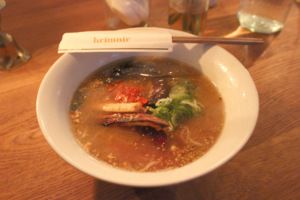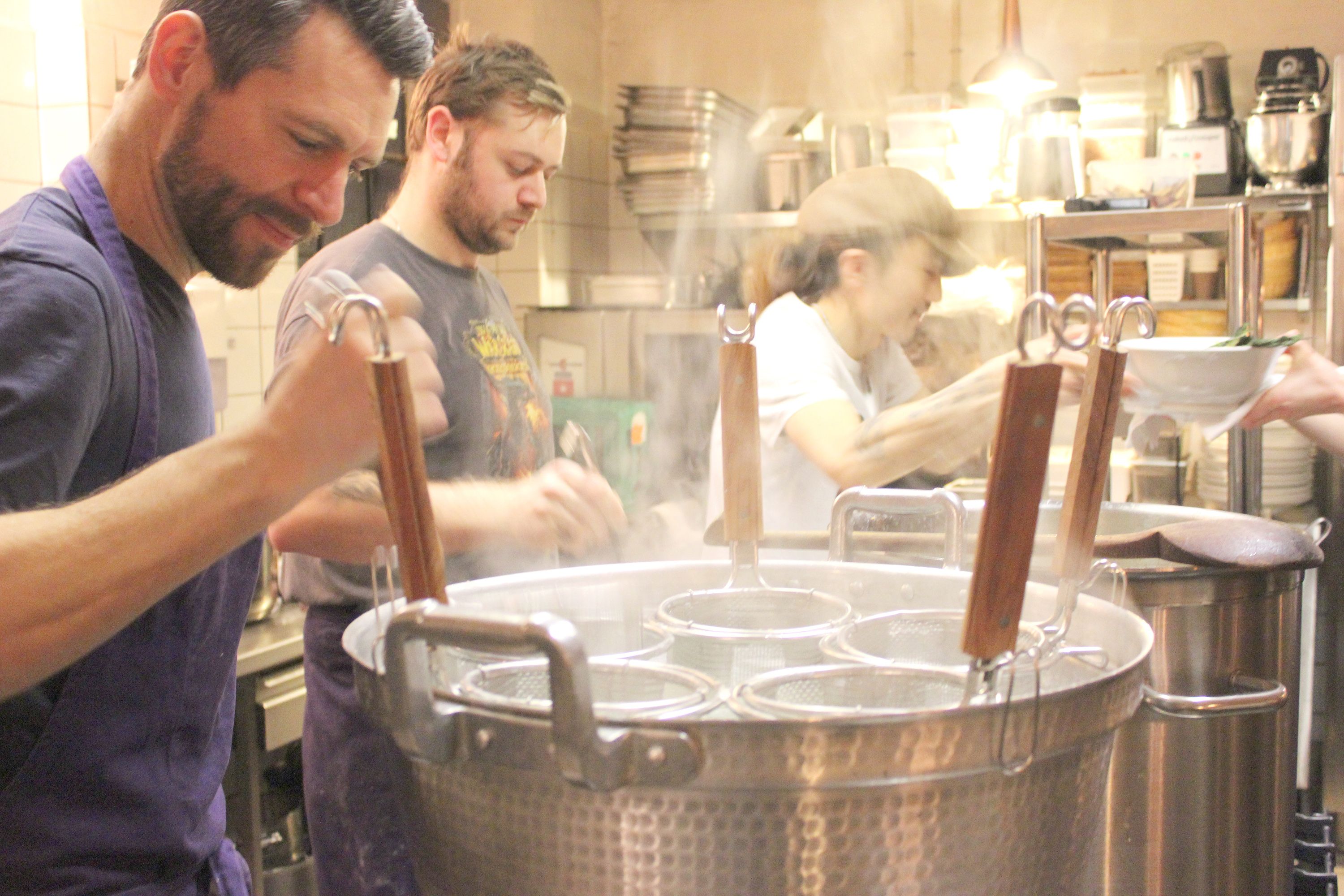Pop-up restaurants have become extremely popular in Copenhagen over the past year. Among the current crop emulating Noma are David Quist and his team, who have been raising their heads above the capital’s parapet since late January with their Japanese cuisine-inspired venture Hrímnir.
For Quist, getting noticed is important as he has something substantial to say – he wants to make a difference. Although the cuisine is Japanese – and the chef as well – the ingredients are all Danish, which makes the final product a Nordic version: ‘the hrímnir ramen’ whose main mission is to be sustainable.

Not about being hip
“It’s not about doing a hip, trendy ramen. You can do ramen every day at home. What we want is to show our vision through food,” explained Quist who is keen to promote the idea that eating sustainable food should be “an everyday experience”. He wants to reach out to people and make an impact, and he thought food would be an approachable and more direct method to expand his vision.
After many years working for the European Environment Agency, the former microbiologist got tired of the “low political will” and decided to leave.
“I didn’t want to fight in a place where there was no will and only financial obstacles. That’s why I decided I should empower the communities by myself to provoke change by educating and raising awareness about food integrity and ethics,” he said.
Japanese influences
Launching Hrímnir had been in the pipeline for three years before Quist could make it come true. Although he has no culinary education, he spent summers in Japan teaching English where he tried experimenting with different recipes himself.
In Copenhagen the project began with the ingredient search. The focus on local made it vital that they picked first and then elaborated the recipe, not the other way round.
Together with his Japanese chef, they went to farms in Zealand to find the best quality products, and from them they made Hrímnir’s first two dishes: a vegetarian miso and a wild boar tonkotsu ramen.
The gods would be proud
In the vegetarian miso, grilled vegetables such as parsnip and beetroot provide a sweet taste that mixed with the chilli-lime seasonings and black garlic oil create a wonderfully aromatic experience that pairs up perfectly with homemade wheat noodles.
“We especially selected the wheat we use for our noodles, and although we use an Italian pasta machine, I changed its settings to suit the noodles we wanted to create,” explained Quist.
The second plate, the wild boar tonkotsu, was served with roasted kale chips, Jerusalem artichokes and slices of charred pork belly. It is a rich and milky dish that gets its name from the stewed wild boar that dead Vikings – according to Norse mythology – ate in Valhalla. And indeed, its flavour is ethereal.
Great value for money
But is it expensive to be sustainable? Quist explains that it is and therefore quite challenging to remain competitive. Nevertheless, at 115 kroner a dish, he contends you’ll struggle to find better using such high-quality ingredients.
Besides the dish, you also get a notably sizeable portion fit for a king, making you satisfied in every sense after the meal, which I believe is what Quist wants to achieve.
“Our project has been received very well in the community and people have been really receptive about the concept. They want to know what’s behind it and not just eat and go,” contends Quist.
Two more weekends
Copenhageners are certainly becoming more conscious about where the food they eat comes from, and they want to know if restaurants are offering them sustainable and organic ingredients that respect the environment.
There are now two weeks left to sample the ramen cuisine at the pop-up restaurant, which Quist hopes will one day become a permanent fixture. It’s the perfect place to just walk in and enjoy comfort food on a cold winter’s night – your body, and the environment, will appreciate it!














